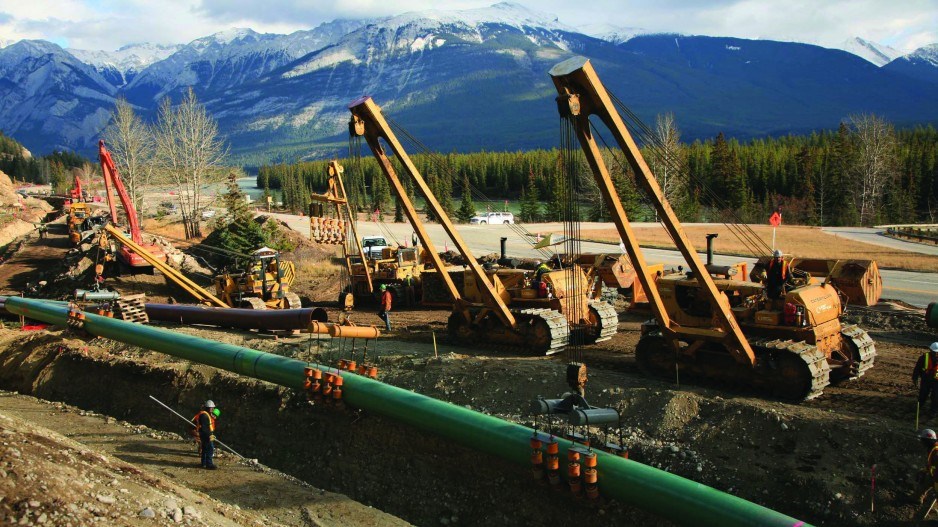Pretend you’re in a New York City boardroom making a presentation about potential energy infrastructure investments.
As you click through your PowerPoint presentation you finally land on a slide that reveals a map of Canada.
“Can you imagine what those fund managers and portfolio people would be saying about that this morning?” Resource Works executive Stewart Muir told Business in Vancouver on Aug. 30. “It’s not a place where, right now until this uncertainty is resolved, there will be anyone [willing to invest].”
Muir, whose non-profit organization promotes B.C.’s resource industry, was speaking hours after the Federal Court of Appeal nullified the National Energy Board’s approval of Kinder Morgan Canada’s (TSX:KML) Trans Mountain pipeline expansion project.
The decision came the same morning Kinder Morgan Canada shareholders voted to green light the sale of the pipeline and its expansion to the federal government for $4.5 billion.
“He’s [Prime Minister Justin Trudeau] just undertaken the purchase of a pipeline that no longer has a valid permit from his own government,” said University of British Columbia (UBC) political science professor Kathryn Harrison, who specializes in environmental policy, “and thus looks like a kind of lemon purchase of many billions of dollars of taxpayers’ money.”
She added Trudeau’s credibility as a leader will take a hit from the decision after he displayed “a lot of bravado” insisting the pipeline expansion would be completed.
Harrison said it’s unclear what the government’s next step will be.
Ottawa could either redo consultations with Indigenous groups – a process the court ruling highlighted as flawed in its current form – or wait until new legislation is in place.
But Greg D’Avignon, CEO of the Business Council of BC, said the courts’ involvement in the process has been a flashpoint for frustration for businesses and investors.
“It’s unfair to ask businesses to enter into a process and to invest capital and time and their reputation, knowing full well that today that process is unclear. You don’t know how much it’s going to cost, how long it’s going to take or whether or not when you follow the rules you’ll actually get a decision,” D’Avignon said.
“We’re seeing, in real time, capital decide not to place itself in Canada and British Columbia, and go elsewhere because there’s more clarity and more certainty [in other jurisdictions].”
Meanwhile, both Harrison and George Hoberg, a professor at UBC’s School of Public Policy and Global Affairs, agree that B.C. Premier John Horgan walks away from this court decision in a better position after promising to fight the expansion project during last year’s provincial election campaign.
“In some ways the court making this decision … depoliticizes the current B.C.-Alberta conflict,” Hoberg said, referring to the tensions between the provinces as Horgan and Alberta Premier Rachel Notley publicly sparred over the expansion project. “It puts it back again squarely with the federal government and Alberta.”
But, he said, international investment in Canada is likely going to take a hit in the short term.
“It’s a signal we need to change the way we do things on two fronts. One is you can’t do big things like this without First Nations buy-in in Canada. And second, it’s doing the wrong kind of thing given the [concerns] we have with climate change.”
— Tyler Orton, Business in Vancouver



